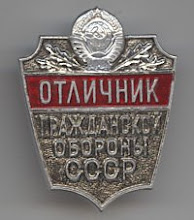"The Perimeter system is very, very nice," he says. "We remove unique responsibility from high politicians and the military." He looks around again. Yarynich is talking about Russia's doomsday machine. That's right, an actual doomsday device—a real, functioning version of the ultimate weapon, always presumed to exist only as a fantasy of apocalypse-obsessed science fiction writers and paranoid über-hawks.
No, no, NO. Perimeter is NOT a doomsday machine and does not meet the definition of one. As Russian nuclear arms expert Pavel Podvig explained in a 2006 post on his excellent blog:
The Soviet Union never built this automatic Doomsday Machine (also known as Dead Hand) -- the Perimeter communication system that is often mistaken for it is something quite different.
As Podvig explains, the "Dead Hand" was a proposal made in the mid-1980s that was ultimately rejected. Distinct from Perimeter, it was to be fully automated--if it detected nuclear strikes on the Soviet Union and lost contact with all human agencies with the authority to launch a retaliatory strike, it would retaliate on its own. Perimeter, meanwhile, merely automatically delegates launch authority from the highest civilian and military authorities to a hardened command center in case of a decapitation strike. The difference is that Perimeter is not fully automatic--launch authority ALWAYS remains under human control. Furthermore, never mind that the classic doomsday machine was supposed to be much more destructive than Perimeter--keep in mind that Perimeter would in all likelihood only ever be activated once a very substantial fraction of the Soviet nuclear arsenal had been destroyed in an American preemptive nuclear strike. The doomsday device proposed by Leo Szilard and explored by Herman Kahn in his 1960 On Thermonuclear War was supposed to be a world-destroying weapon which would render the world uninhabitable. By this definition, even the fully automated and unrealized "Dead Hand" would not be a doomsday machine.
I can see the temptation to confuse Perimeter with a doomsday machine--after all, everyone loves Dr. Strangelove and you wouldn't exactly sell as many books if they were titled "Perimeter: Soviet Automated System for Delegation of Launch Authority in Case of Decapitation Strike." But Perimeter just isn't the stuff pulp thriller novels are made of. Indeed, Thompson even admits this, despite the hype contained in his own article:
According to both Yarynich and Zheleznyakov, Perimeter was never meant as a traditional doomsday machine.
Unlike some other spurious Soviet doomsday machine myths this one contains a germ of truth. Furthermore, Perimeter is not in fact particularly dangerous. Multiple layers of human authority are still required to launch a nuclear attack, in addition to the detection of nuclear strikes on Russia. What was really dangerous was the practice in the 1950s and 1960s to field nuclear weapons that either lacked permissive action links or in which they were effectively disabled (it is well-known that SAC bypassed the PALs in the 1960s by setting all of them to strings of zeros). This would raise the possibility of lone "General Jack T. Rippers" launching nuclear wars all on their own. During the early Cold War Soviet nuclear posture was vastly less aggressive and accident-prone than that of the United States (the actual weapons were only to be released to the military in a crisis), greatly reducing the likelihood of such a scenario.
Perimeter is neither a doomsday machine nor a serious threat to U.S. security, past or present. It's time to stop pretending otherwise.

2 comments:
Have you looked at David Hoffman's new book "The Dead Hand"?
http://www.amazon.com/Dead-Hand-Untold-Dangerous-Legacy/dp/0385524374/ref=sr_1_1?ie=UTF8&s=books&qid=1256491079&sr=1-1
I'm planning on reading it when I get the chance, but as I'm currently in Moscow it will be awhile. I was considering asking my sister to bring it when she comes to visit in December. From what I've heard of it I suspect I'll probably agree with the overall thrust of the argument while vehemently disagreeing with much of the detail. But we'll see.
Post a Comment